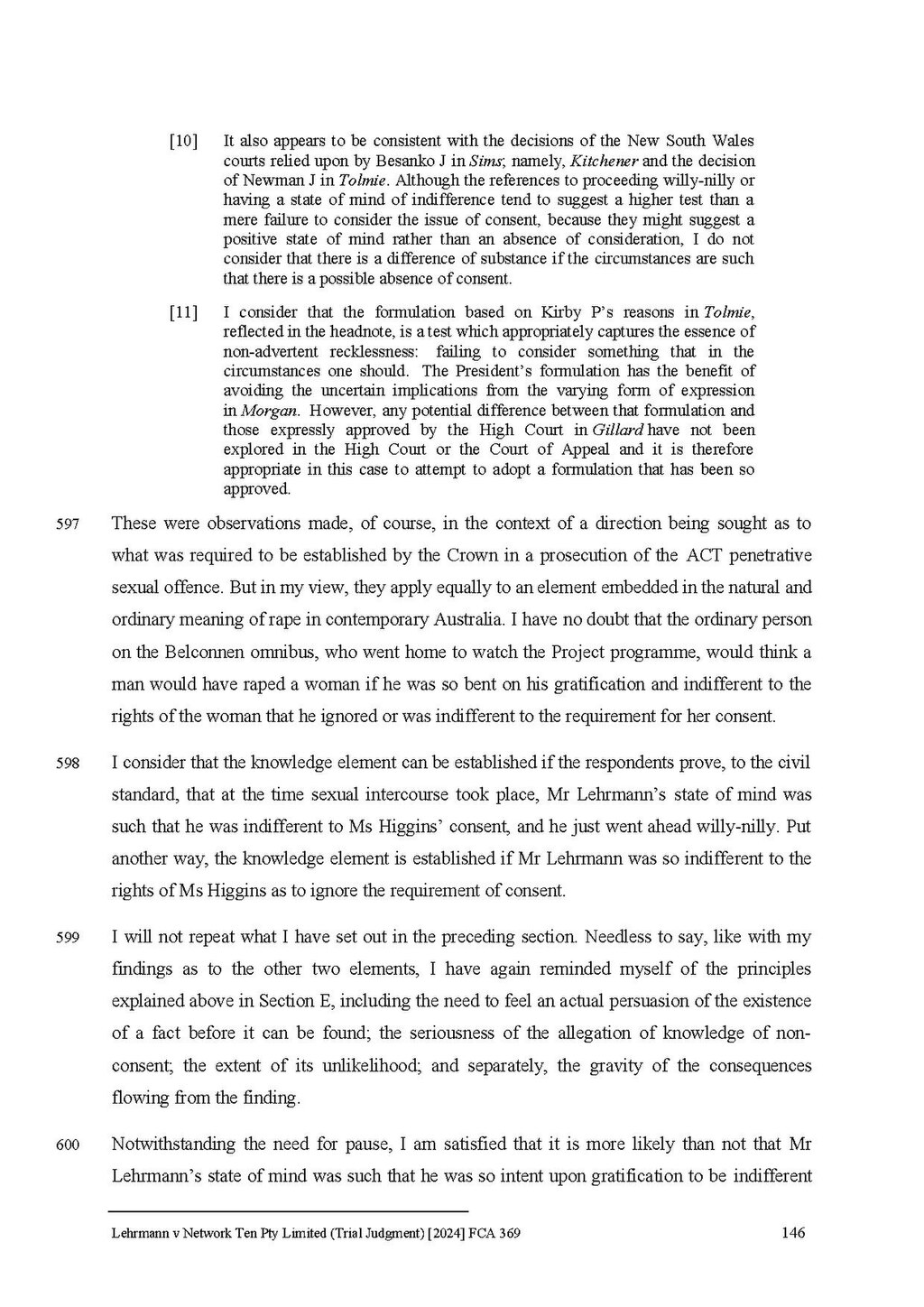[10] It also appears to be consistent with the decisions of the New South Wales courts relied upon by Besanko J in Sims; namely, Kitchener and the decision of Newman J in Tolmie. Although the references to proceeding willy-nilly or having a state of mind of indifference tend to suggest a higher test than a mere failure to consider the issue of consent, because they might suggest a positive state of mind rather than an absence of consideration, I do not consider that there is a difference of substance if the circumstances are such that there is a possible absence of consent.
[11] I consider that the formulation based on Kirby P's reasons in Tolmie, reflected in the headnote, is a test which appropriately captures the essence of non-advertent recklessness: failing to consider something that in the circumstances one should. The President's formulation has the benefit of avoiding the uncertain implications from the varying form of expression in Morgan. However, any potential difference between that formulation and those expressly approved by the High Court in Gillard have not been explored in the High Court or the Court of Appeal and it is therefore appropriate in this case to attempt to adopt a formulation that has been so approved.
597 These were observations made, of course, in the context of a direction being sought as to what was required to be established by the Crown in a prosecution of the ACT penetrative sexual offence. But in my view, they apply equally to an element embedded in the natural and ordinary meaning of rape in contemporary Australia. I have no doubt that the ordinary person on the Belconnen omnibus, who went home to watch the Project programme, would think a man would have raped a woman if he was so bent on his gratification and indifferent to the rights of the woman that he ignored or was indifferent to the requirement for her consent.
598 I consider that the knowledge element can be established if the respondents prove, to the civil standard, that at the time sexual intercourse took place, Mr Lehrmann's state of mind was such that he was indifferent to Ms Higgins' consent, and he just went ahead willy-nilly. Put another way, the knowledge element is established if Mr Lehrmann was so indifferent to the rights of Ms Higgins as to ignore the requirement of consent.
599 I will not repeat what I have set out in the preceding section. Needless to say, like with my findings as to the other two elements, I have again reminded myself of the principles explained above in Section E, including the need to feel an actual persuasion of the existence of a fact before it can be found; the seriousness of the allegation of knowledge of non-consent; the extent of its unlikelihood; and separately, the gravity of the consequences flowing from the finding.
600 Notwithstanding the need for pause, I am satisfied that it is more likely than not that Mr Lehrmann's state of mind was such that he was so intent upon gratification to be indifferent
